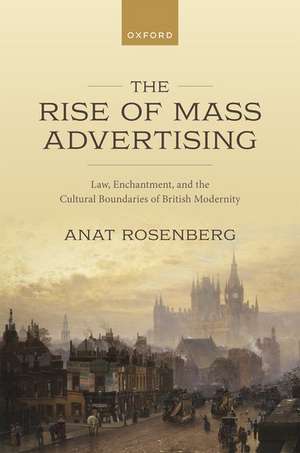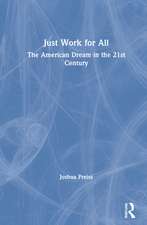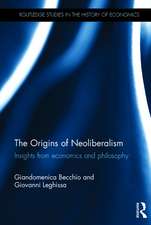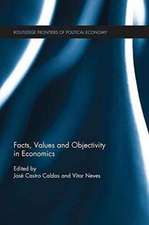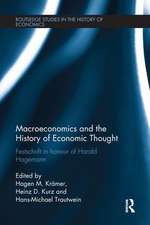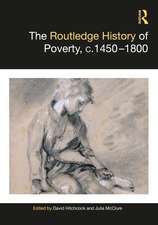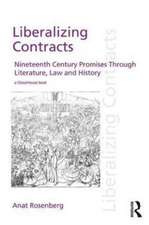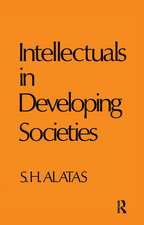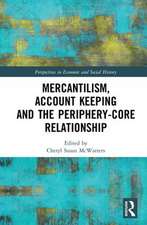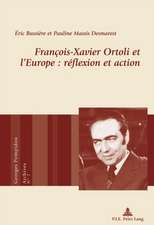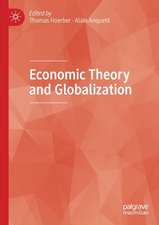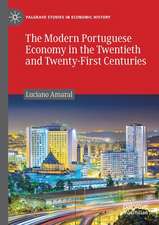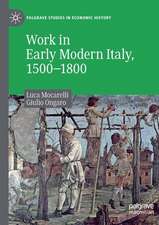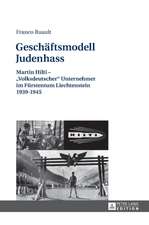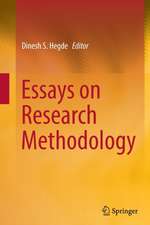The Rise of Mass Advertising: Law, Enchantment, and the Cultural Boundaries of British Modernity
Autor Anat Rosenbergen Limba Engleză Hardback – 22 sep 2022
Preț: 575.33 lei
Preț vechi: 658.69 lei
-13% Nou
Puncte Express: 863
Preț estimativ în valută:
110.10€ • 114.25$ • 92.03£
110.10€ • 114.25$ • 92.03£
Carte disponibilă
Livrare economică 13-19 februarie
Preluare comenzi: 021 569.72.76
Specificații
ISBN-13: 9780192858917
ISBN-10: 0192858912
Pagini: 428
Ilustrații: more than 100 black and white and colour images
Dimensiuni: 163 x 241 x 22 mm
Greutate: 0.86 kg
Editura: OUP OXFORD
Colecția OUP Oxford
Locul publicării:Oxford, United Kingdom
ISBN-10: 0192858912
Pagini: 428
Ilustrații: more than 100 black and white and colour images
Dimensiuni: 163 x 241 x 22 mm
Greutate: 0.86 kg
Editura: OUP OXFORD
Colecția OUP Oxford
Locul publicării:Oxford, United Kingdom
Recenzii
This book is a cultural legal history of advertising in Britain.
The Rise of Mass Advertising is an expansive endeavour—but it is delivered with astute specificity. Besides providing an extensive account of the formative decades of British mass advertising, the book engages and complements works that question sweeping narratives of modern disenchantment ...
In this wide-ranging study, Anat Rosenberg brilliantly recasts the history of mass advertising by attending to the pivotal role of law in differentiating adverts from news, art, science, and immoral enterprises, which served at once to disparage and legitimate the imaginative appeals and promotional ploys of advertisers. Meticulously researched and richly illustrated, The Rise of Mass Advertising is a treasure trove of images, ideas, and ideals about the subject of consumption. Thinking across cultural fields and scholarly disciplines, Rosenberg compellingly demonstrates how the advertising industry and its legal regulators helped nineteenth-century Britons to negotiate the perils and potentialities of modern economic life. It is an important book that will be read with great profit by historians of capitalism, law, and the human sciences.
In the nineteenth century advertising was a newly pervasive and multi-faceted form which, along with every kind of argument and amazement, gave rise to defining legal disputes. From quack doctors to dubious lotteries to men in tights - all the wild Victorian world is there, on the posters and in the court cases that Anat Rosenberg's original book takes on, as she tracks the adjudication of advertising's rational and affective modes. An engaging combination of information and surprise—like the best kind of ad.
A brilliant work of interdisciplinary humanistic scholarship, one that transforms the historical study of advertising. Rosenberg provides a deep and convincing challenge to perspectives that insist on disenchantment as definitive of modernity. She models a variety of ways to explore how advertisements were received and read. She illuminates much in Victorian legal domains. Meanwhile, it is hard to think of another work that so helpfully illustrates a constitutive understanding of law. Scholars in law and humanities, legal history, British studies, economic history, art history, and medical history, among others, are going to find this an inescapable and necessary and challenging work.
The onslaught of mass advertising in the nineteenth century established some central features of capitalist modernity with which we still live today. It posed challenges to the popular imagination, to norms of rationality and common sense, to conventional morality, and to sellers, buyers and regulators alike. Anat Rosenberg's artful enquiry shows how Victorian society met these challenges and accommodated them into everyday life. Only this determined interdisciplinary approach - combining law, economics, culture and politics - could help us make sense of the teeming variety of goods and claims that threatened to overwhelm contemporaries, and have overwhelmed many a lesser historian.
A richly-researched and originally conceived study, The Rise of Mass Advertising foregrounds the legal realm's disparagement of advertising as a fundamental part of Britain's modern disenchantment. By considering the differences between information and publicity; the uses of public spaces by commercial interests; definitions of puffery and quackery; the evolution of branding, and the rise of professional advertising knowledge, Rosenberg deftly unpacks the relation between economics and aesthetics that lay at the heart of Britain's evolution. She shows that advertising fed the public's desire for magic made in new ways, while simultaneously institutionalizing disenchantment as "modern." Finally, advertising is important not because it embodied changes in capitalism but because it in fact, produced them.
Drawing on an extensive archive of legal and cultural sources, many previously unexamined, this remarkable study provides a novel perspective on the role of law in shaping mass advertising and its place in society. It casts new light on the intricacies of legal presence, the criticisms that attended the expansion of advertising and their formalization through law, and the part law assumed in stabilizing contested boundaries between different fields and interests. Together these insights afford a new perspective on advertising's significance for modernity. Exhaustive, meticulous and post-disciplinary, almost every page is enlivened by a treasure trove of images.
Well written and researched, the book draws readers into another world where commerce and enchantment meet.
Anat Rosenberg's The Rise of Mass Advertising is a multi-dimensional, multi-media exhibition.
The Rise of Mass Advertising is a landmark history whose influence is likely to be felt for years to come.
This historical account is essential reading for all interested in the continuing debates on the role of advertising and its regulation, or those teaching and researching contract and consumer law.
The legal archive that Rosenberg introduces uncovers how ordinary men and women read advertising,...Rosenberg's method thus illuminates the everyday worlds of consumer capitalism.
The Rise of Mass Advertising is an expansive endeavour—but it is delivered with astute specificity. Besides providing an extensive account of the formative decades of British mass advertising, the book engages and complements works that question sweeping narratives of modern disenchantment ...
In this wide-ranging study, Anat Rosenberg brilliantly recasts the history of mass advertising by attending to the pivotal role of law in differentiating adverts from news, art, science, and immoral enterprises, which served at once to disparage and legitimate the imaginative appeals and promotional ploys of advertisers. Meticulously researched and richly illustrated, The Rise of Mass Advertising is a treasure trove of images, ideas, and ideals about the subject of consumption. Thinking across cultural fields and scholarly disciplines, Rosenberg compellingly demonstrates how the advertising industry and its legal regulators helped nineteenth-century Britons to negotiate the perils and potentialities of modern economic life. It is an important book that will be read with great profit by historians of capitalism, law, and the human sciences.
In the nineteenth century advertising was a newly pervasive and multi-faceted form which, along with every kind of argument and amazement, gave rise to defining legal disputes. From quack doctors to dubious lotteries to men in tights - all the wild Victorian world is there, on the posters and in the court cases that Anat Rosenberg's original book takes on, as she tracks the adjudication of advertising's rational and affective modes. An engaging combination of information and surprise—like the best kind of ad.
A brilliant work of interdisciplinary humanistic scholarship, one that transforms the historical study of advertising. Rosenberg provides a deep and convincing challenge to perspectives that insist on disenchantment as definitive of modernity. She models a variety of ways to explore how advertisements were received and read. She illuminates much in Victorian legal domains. Meanwhile, it is hard to think of another work that so helpfully illustrates a constitutive understanding of law. Scholars in law and humanities, legal history, British studies, economic history, art history, and medical history, among others, are going to find this an inescapable and necessary and challenging work.
The onslaught of mass advertising in the nineteenth century established some central features of capitalist modernity with which we still live today. It posed challenges to the popular imagination, to norms of rationality and common sense, to conventional morality, and to sellers, buyers and regulators alike. Anat Rosenberg's artful enquiry shows how Victorian society met these challenges and accommodated them into everyday life. Only this determined interdisciplinary approach - combining law, economics, culture and politics - could help us make sense of the teeming variety of goods and claims that threatened to overwhelm contemporaries, and have overwhelmed many a lesser historian.
A richly-researched and originally conceived study, The Rise of Mass Advertising foregrounds the legal realm's disparagement of advertising as a fundamental part of Britain's modern disenchantment. By considering the differences between information and publicity; the uses of public spaces by commercial interests; definitions of puffery and quackery; the evolution of branding, and the rise of professional advertising knowledge, Rosenberg deftly unpacks the relation between economics and aesthetics that lay at the heart of Britain's evolution. She shows that advertising fed the public's desire for magic made in new ways, while simultaneously institutionalizing disenchantment as "modern." Finally, advertising is important not because it embodied changes in capitalism but because it in fact, produced them.
Drawing on an extensive archive of legal and cultural sources, many previously unexamined, this remarkable study provides a novel perspective on the role of law in shaping mass advertising and its place in society. It casts new light on the intricacies of legal presence, the criticisms that attended the expansion of advertising and their formalization through law, and the part law assumed in stabilizing contested boundaries between different fields and interests. Together these insights afford a new perspective on advertising's significance for modernity. Exhaustive, meticulous and post-disciplinary, almost every page is enlivened by a treasure trove of images.
Well written and researched, the book draws readers into another world where commerce and enchantment meet.
Anat Rosenberg's The Rise of Mass Advertising is a multi-dimensional, multi-media exhibition.
The Rise of Mass Advertising is a landmark history whose influence is likely to be felt for years to come.
This historical account is essential reading for all interested in the continuing debates on the role of advertising and its regulation, or those teaching and researching contract and consumer law.
The legal archive that Rosenberg introduces uncovers how ordinary men and women read advertising,...Rosenberg's method thus illuminates the everyday worlds of consumer capitalism.
Notă biografică
ANAT ROSENBERG studies the history of capitalism, consumption, and liberalism, through methodologies of law, culture, and the humanities. She is a faculty member at the Harry Radzyner Law School, Reichman University, Israel. While working on this book she was a visitor at the Faculty of History, the University of Cambridge (2017-20) and the Institute of Advanced Legal Studies, the University of London (2017-19).
